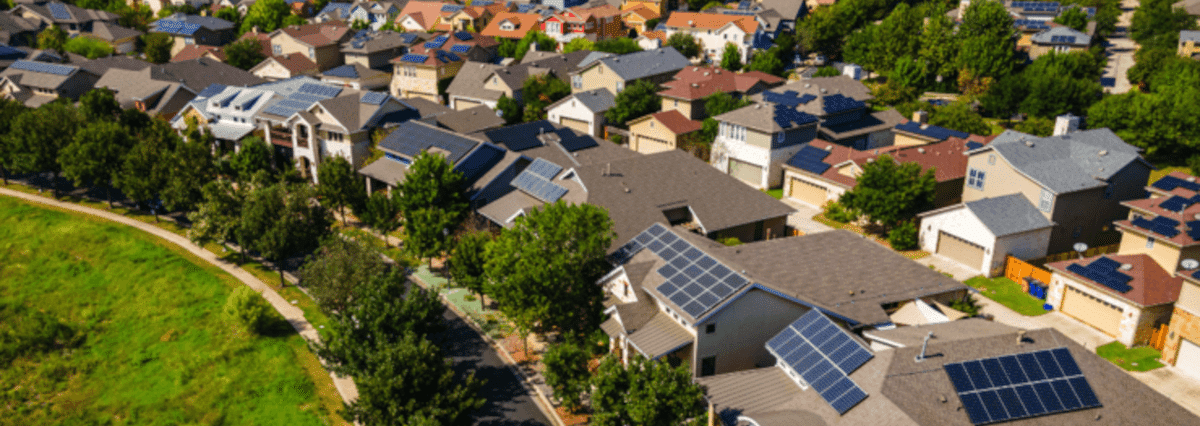Os alvos de energia solar descentralizada no NECP estão muito abaixo do potencial técnico e econômico existente para essa forma de produção de energia. É uma melhor opção social, econômica e ambiental
- Solar PV in Portugal is increasing, however disproportionally more for centralised solar
- The real potential for decentralised solar is much higher than its targets in the NECP, and it’s a better social, economical and environmental option
- The targets for decentralised solar in the revised NECP should be increased and barriers should be removed to its expansion
Solar energy production in Portugal in large centralised systems has been the target of large investments, taking advantage of economies of scale and leading to a drop in the cost per unit of energy produced. Compared to decentralised solar energy production, for example on rooftops, energy production in large centralised systems is considered cheaper, but the difference is blurred or cancelled out when the positive and negative externalities in each of the models are included in the equation – for example, destruction of habitats in the case of centralised solar or greater energy security in the case of decentralised solar.
In the last three years (2019 – 2021), new installed capacity in centralised solar was around 70%, with decentralised solar recording only 30%. This situation was expected, as Portugal has since 2019 a specific legal framework for the allocation of power in large solar plants through auctions, and, on the other hand, the National Energy and Climate Plan (NECP) points to a capacity of decentralised solar in Portugal in 2030 of 2,000 MW and of centralised of 7,000 MW.
No caso de Portugal, devido às suas condições favoráveis em termos de horas de sol e conjuntura de mercado, há potencial para suprir com viabilidade técnica e econômica em torno de 50% de seu consumo de eletricidade com base no telhado solar-fotovoltaico. Isso significa que o potencial para aproveitar a produção de energia nos telhados de casas e edifícios residenciais e de serviços está sendo desperdiçado, seja em uma base individual, corporativa ou comunitária. O controle da comunidade e a propriedade das estruturas energéticas são a única maneira de democratizar um setor que ainda sofre de muita centralização. Além disso, em um mundo cheio de instabilidade geopolítica e aumento dos preços da energia, a produção de energia distribuída através do autoconsumo é um elemento-chave para mitigar a insegurança energética e os efeitos do aumento dos preços nas famílias e nas empresas. para a nossa newsletter
The faster the energy transition in the electricity sector will be, the more decentralised, participative and cooperative it is. Community control and ownership of energy structures is the only way to democratise a sector that still suffers from too much centralisation. Moreover, in a world full of geopolitical instability and rising energy prices, distributed energy production through self-consumption is a key element in mitigating both energy insecurity and the effects of rising prices on families and businesses.
PREVIOUS
NEXT

